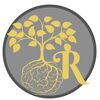Regenerative Commercial Farm
- We Are Currently in The Process of NZQA Accreditation of This Course and Aim To Launch Our First Cohort in July 2024
|
|
Join the Regenerative Farm Design Course for a transformative journey in sustainable farming. This program focuses on regenerative design principles to revive degraded farmland into thriving ecosystems while ensuring economic viability. Across seven modules, explore topics like Climate Adaptation, Biodiversity, and more, collaborating within an online community of farmers in New Zealand. |
Course Goals:
This course takes you on a design journey for creating a regenerative farming system. This course covers the philosophy and application of regenerative design to create functional, resilient, and productive farms modelled upon natural systems.
The emphasis of the course is to restore degraded farmland back to a biologically functional state, while sustaining a land-based income to landowners. The key outcomes from adopting this philosophy are to improve soil health, enhance ecosystem services, improve water quality, increase carbon sequestration, and improve livestock and farmer wellbeing.
Within this course you will be part of a collaborative online community of farmers around New Zealand and with the support of the course materials, online community, tutors and guest speakers you will create a regenerative farm plan and implementation strategy.
The course is broken into 7 online modules, each exploring the philosophy and application of regenerative design. Within each module you will have the opportunity to collaborate with other learners to extend and deepen your learning. Topics are explored within eBooks, explanation videos, quizzes, discussion forums and online classroom chats. You also have the opportunity to explore topics deeper through research tasks.
Key Outcomes:
In this course you will work with the support from our tutors and online community to create the following:
Course Topics
For more information about the core modules in this course - follow the links below:
You can also select one specialty topic that relates best to your design goals:
(you can enroll in extra topics separately also)
Graduation
Completion of the course depends on completing all the modules above and submitting a final design portfolio.
This course takes you on a design journey for creating a regenerative farming system. This course covers the philosophy and application of regenerative design to create functional, resilient, and productive farms modelled upon natural systems.
The emphasis of the course is to restore degraded farmland back to a biologically functional state, while sustaining a land-based income to landowners. The key outcomes from adopting this philosophy are to improve soil health, enhance ecosystem services, improve water quality, increase carbon sequestration, and improve livestock and farmer wellbeing.
Within this course you will be part of a collaborative online community of farmers around New Zealand and with the support of the course materials, online community, tutors and guest speakers you will create a regenerative farm plan and implementation strategy.
The course is broken into 7 online modules, each exploring the philosophy and application of regenerative design. Within each module you will have the opportunity to collaborate with other learners to extend and deepen your learning. Topics are explored within eBooks, explanation videos, quizzes, discussion forums and online classroom chats. You also have the opportunity to explore topics deeper through research tasks.
Key Outcomes:
In this course you will work with the support from our tutors and online community to create the following:
- Understanding the philosophy of regenerative design to designing ecological farming systems.
- Detailed Farm Design (supported by design team)
- Investigate the characteristics of your site that will impact your design
- Free access to Vectorworks and support form tutors to create farm designs
- Final regenerative farm plan and implementation strategy
- Introduction to a supportive online community of regenerative changemakers
Course Topics
For more information about the core modules in this course - follow the links below:
- Regenerative Design Principles
- Topography and Mapping
- Climate Adaptation
- Water Quality
- Creating Healthy Soil
- Biodiversity on Farms
- Market Analysis
- Site Analysis
You can also select one specialty topic that relates best to your design goals:
(you can enroll in extra topics separately also)
Graduation
Completion of the course depends on completing all the modules above and submitting a final design portfolio.
